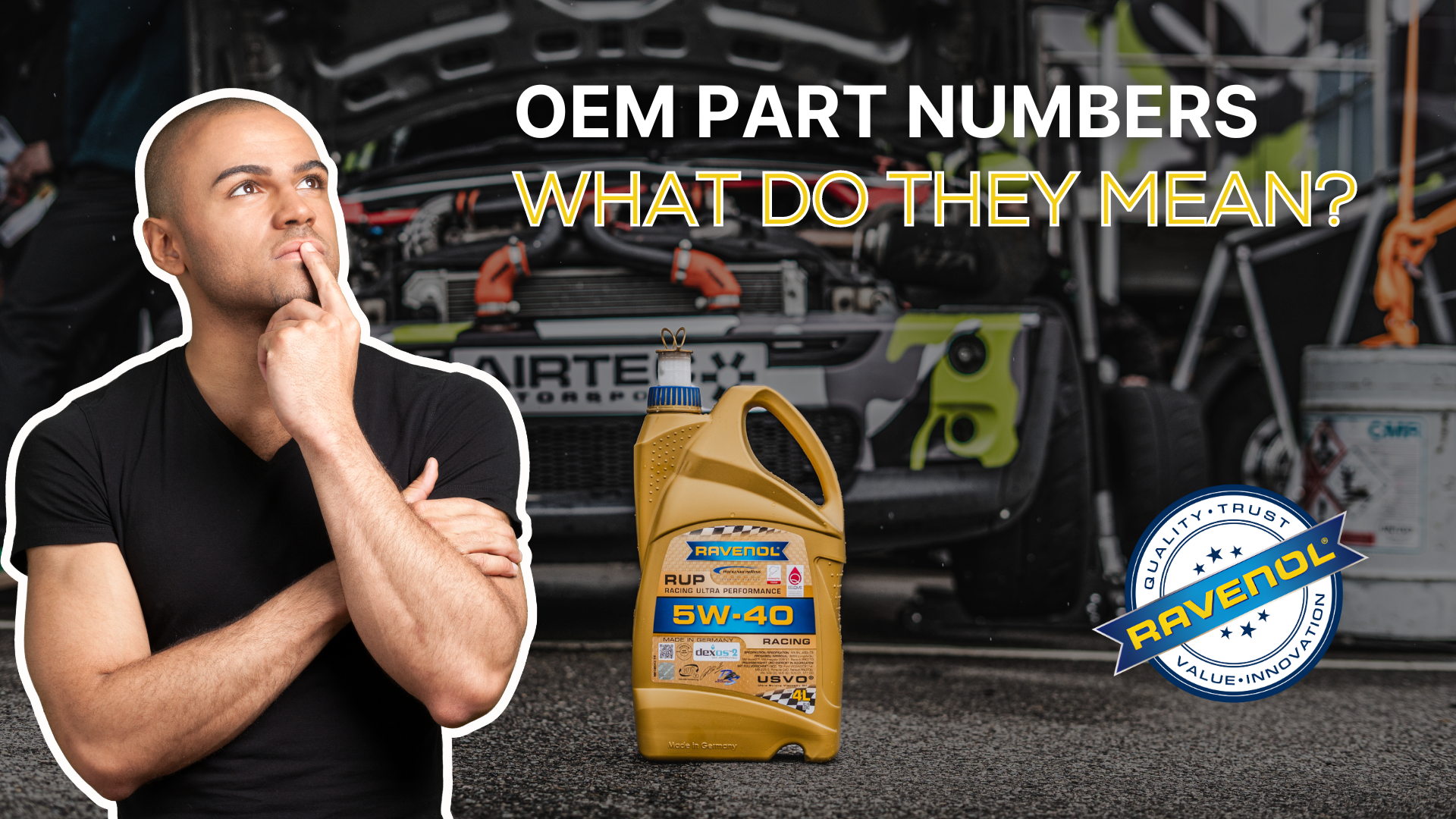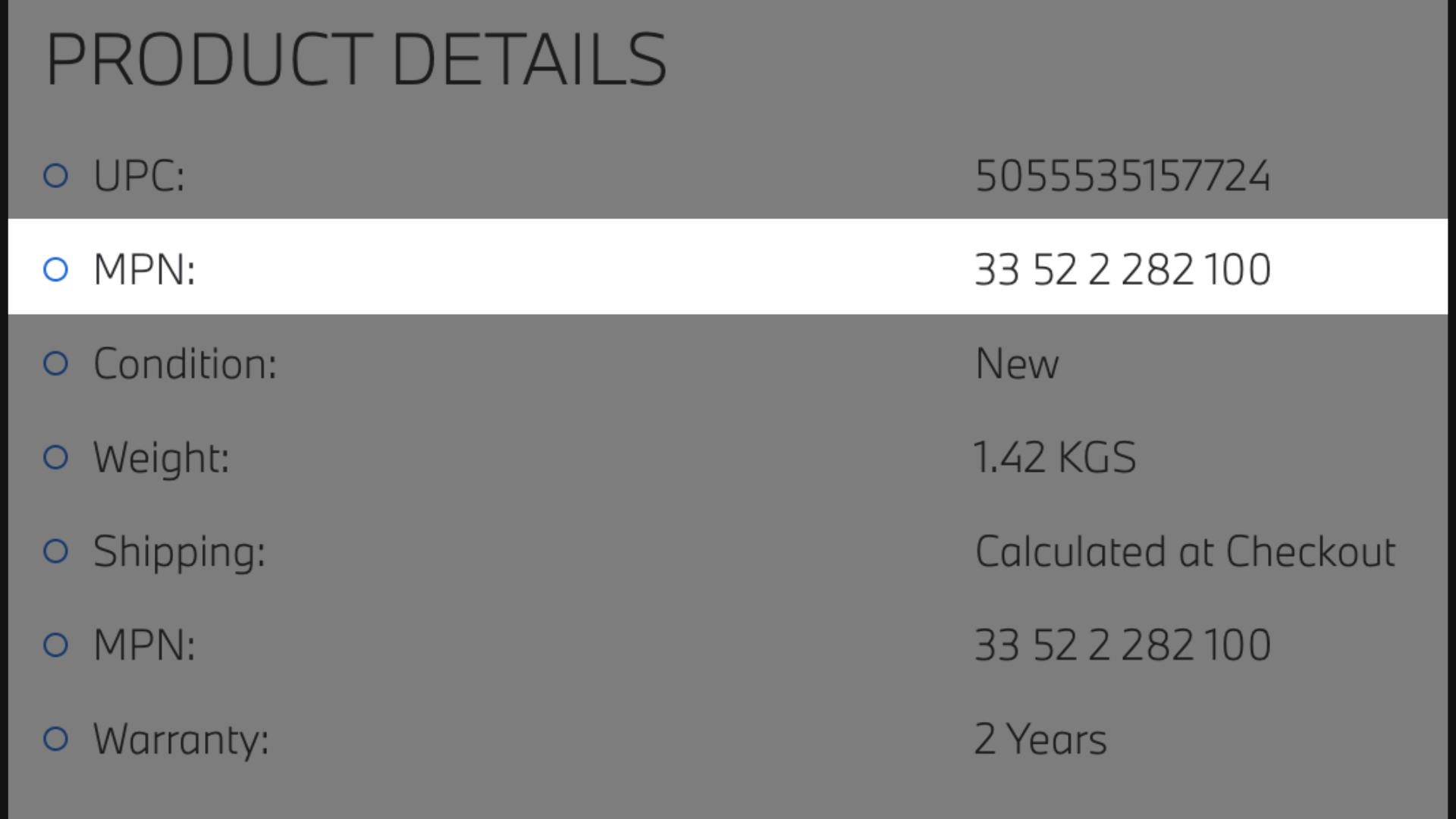What Do OEM Part Numbers and Approvals Actually Mean?

When shopping for engine oil, lubricants, or even replacement parts for your vehicle, you’ll often come across something called OEM part numbers and OEM approvals. These terms are essential for ensuring the products you’re using are perfectly suited to your vehicle. But what exactly do they mean, and why are they so important for maintaining your car?
In this blog, we’ll break down what OEM part numbers and approvals signify, why they matter, and how Ravenol products with OEM approvals can ensure optimal performance for your vehicle. Basically, what does it all mean?
What Does OEM Stand For?
First, let’s clarify what OEM stands for: Original Equipment Manufacturer. When you see the term OEM, it means that a product has been produced either by the original manufacturer of the vehicle or meets the same standards and specifications as the parts and fluids originally installed in the vehicle.
For example, if your car is a BMW, OEM parts or fluids will either be made by BMW or have received BMW’s approval to be used as a direct replacement.
What Is an OEM Part Number?
An OEM part number is a unique identification code assigned to a specific part by the vehicle’s manufacturer. These numbers help manufacturers, mechanics, and consumers easily identify the exact part or product designed for a specific make and model of vehicle.
In the case of lubricants, an OEM part number helps specify the type of oil, transmission fluid, or other fluid required for your vehicle. For example, if you need engine oil for a Volkswagen, the OEM part number will direct you to a product that has been tested and approved by Volkswagen to meet the exact specifications needed for that engine.

Above: This is a part number for a rear shock absorber from BMW with the MPN (Manufacturers Part Number) highlighted.
OEM part numbers ensure:
- Compatibility: You’re using the exact part or product designed for your vehicle.
- Reliability: The part or fluid meets the manufacturer’s standards, which ensures it will work as intended without causing any damage.
- Longevity: Using the correct OEM parts or products can prolong the life of your engine or vehicle components.
What Are OEM Approvals?
While an OEM part number is a specific identifier for a particular component, an OEM approval is more about ensuring the product has been tested and validated by the manufacturer. When a lubricant like Ravenol’s engine oil receives an OEM approval, it means that it has undergone rigorous testing to ensure it meets or exceeds the manufacturer’s performance requirements.
As an example, Ravenol engine oils often come with OEM approvals from manufacturers like BMW, Mercedes-Benz, Volkswagen, Porsche, Ford, and more. This means that our oils have been tested under the most demanding conditions and have proven to deliver the protection and performance required by those specific manufacturers.
Why Do OEM Approvals Matter?
1. Manufacturer Trust
An OEM approval is essentially a seal of approval from the vehicle manufacturer. When a lubricant like Ravenol has an OEM approval, it means the product has passed the manufacturer’s stringent performance tests and is guaranteed to protect your engine or transmission as the manufacturer intended.
2. Protects Your Warranty
In many cases, using an OEM-approved oil or part is necessary to maintain your vehicle's warranty. If your vehicle is still under warranty, the use of non-OEM approved fluids or parts could void that warranty, leaving you unprotected if something goes wrong.
3. Optimal Performance
OEM-approved products are tailored to meet the specific needs of your vehicle. Using an oil with the right approval ensures that your engine runs at peak efficiency, while non-approved oils could result in subpar performance or even engine damage.
4. Compatibility
Modern vehicles, especially those with advanced emissions systems or high-performance engines, have specific requirements for lubricants. Using an OEM-approved oil like Ravenol’s guarantees that the oil is compatible with your engine’s materials, tolerances, and emission control systems.
5. Peace of Mind
With an OEM-approved oil, you can take it to your dealership or garage knowing that it’s been certified to work with your vehicle. This guarantees that your car is receiving high-quality oil that meets the exact specifications set by the manufacturer, giving you peace of mind during maintenance or servicing.
How Ravenol’s OEM Approvals Work
At Ravenol, earning OEM approvals is a critical part of the product development process. Every oil formulation undergoes stringent testing by the vehicle manufacturer to ensure it meets the exacting standards needed to protect modern engines. Whether it’s ensuring the oil maintains its viscosity under extreme temperatures, preventing sludge buildup, or reducing wear and tear, Ravenol’s OEM-approved oils are built to deliver exceptional performance.
For example:
Our best seller, Ravenol VMP 5W-30 carries approvals from BMW Longlife-04, Mercedes-Benz MB 229.51, and Volkswagen 504.00/507.00. These approvals mean that this specific oil has been tested and validated for use in those brands' vehicles, ensuring it offers the protection and performance required by these manufacturers. Each engine family is different and you’ll often find that engines produced in the same year from manufacturers may have different approval numbers, so always check which one yours has.

Above: Ravenol ECS 0W-20 USVO engine oil showing the Jaguar Land Rover OEM approval code.
Understanding the Difference Between OEM Approvals and Recommendations
It’s important to note that there’s a difference between an OEM approval and an OEM recommendation. An OEM approval means that the oil or part has been directly tested and approved by the vehicle manufacturer for use in its engines. A recommendation, on the other hand, might simply mean the oil meets industry standards (like API or ACEA) and is suitable for use in a variety of engines but hasn't undergone the manufacturer’s specific testing.
When in doubt, always check for OEM approvals on your oil’s packaging to ensure it’s been officially certified for your vehicle.
The Importance of OEM Approvals for Your Vehicle
OEM part numbers and approvals are not just industry jargon—they are essential markers of quality, compatibility, and reliability. When you choose a Ravenol oil with OEM approval, you’re choosing a product that has been specifically designed to meet the exacting standards of your vehicle’s manufacturer. This means you can drive with confidence, knowing your engine is protected by a high-quality, manufacturer-approved oil.
For added convenience, Ravenol’s Oil Finder tool allows you to easily find the OEM-approved oil for your vehicle. Simply enter your vehicle’s registration number, and the tool will provide you with a list of all the approved oils, including engine oil, steering fluid, brake fluid, gearbox oil, and differential oil. It even tells you the correct amount needed, so there’s no guesswork involved.
Next time you’re choosing oil for your vehicle, make sure you select one with the right OEM approval—like Ravenol’s premium oils—to ensure optimal performance and protection for your engine.
